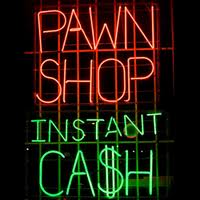 Four quick thoughts now that the elections are over, from a recovering banker.
Four quick thoughts now that the elections are over, from a recovering banker.
1. The equity indexes fell immediately at the open today, and remain down over 2% on the day. Do not let any talking head from the financial-industrial-infotainment industry try to suggest that this is in response to Obama’s election. Every trader on the planet knew that Obama had a 60% chance of winning as of last month, a 75% chance of winning as of last week, and a 90% chance of winning as of the final 48 hours.[1] Nobody who manages capital for a living was caught off-guard by the Obama victory, so nobody suddenly had to reposition their portfolio as a result this morning. Markets and the people with real capital who participate in them are forward-looking and probabilistic; equity markets already reflected widespread expectations of an Obama victory.
2. The next Treasury Secretary matters tremendously for the biggest financial-regulatory issue of the day – the unaddressed problem of Too Big To Fail banks. Secretary Geithner pre-announced that he would not serve in a second Obama administration[2] so the hunt for a new Treasury Secretary is now underway. Geithner’s utterly failed to address the TBTF problem and pushed the Obama administration into a business-as-usual, same-guys-in-charge approach to Wall Street reform. Secretary Paulson’s background as the former Goldman chief who grew up professionally with the rest of Wall Street’s heads played an inordinate role in selecting the winners and losers of the Credit Crunch of 2008, along with in providing the ultimate government backstop for the country’s biggest financial firms. Had Paulson come from any other industry – instead of finance – he would have seen what the rest of us saw: It’s unconscionable to allow firms to pay executive bonuses[3] in the same year that the firms were bailed out by taxpayers. Geithner continued Paulson’s protective approach to Wall Street banks, rather than seizing the opportunity to extract real concessions or reform when the industry needed the government to survive.
I’m not suggesting we put someone like Elizabeth Warren[4] in charge, but we need someone who can independently evaluate what parts of Wall Street need supporting and which parts need curbing. Somebody, in other words, who didn’t spend his or her entire life working on the Street.
3. The “Fiscal Cliff” and fiscal responsibility.
Obviously the FC now becomes the next hot topic for overheated punditry, at least until we pass the January deadline.
I’m not optimistic about the tone of the discussion nor about the possible results of fiscal compromise, but I do have my wishes.
I wish that, with elections for Congress now two years away, can we have less complete bullshit when it comes to fiscal policy positions? Would that be too much to ask?
One party’s leader says the solution lies in tax cuts. The other party’s leader says the solution lies in more generous social spending. One party’s leader says military spending is untouchable. The other party’s leader says transfer payments and social safety net spending is untouchable. All those proposals leave us in a worse fiscal position as a nation.
Hey guys? Can you treat us like grown-ups? We can handle a bit more truth than you’re giving us credit for. We know budget deficits have a terrible trajectory and only a combination of tax hikes and spending cuts will correct the course.
Say what you will about the 2016 Republican nominee, Gov. Chris Christie, he’s proved that refreshingly blunt and seemingly unpopular – but honest talk – can appeal to both sides of the political aisle. Let’s have some more of that as we drive, full throttle, toward the Fiscal Cliff.
4. Tax policy
I’ll have more to write about this shortly, but one of interesting lessons of Mitt Romney’s candidacy is how little the US electorate understands, or cares to understand, about our income tax policies.
By releasing only his 2010 and 2011 income tax returns, Romney effectively obfuscated his financial background. He signaled (albeit quietly) that his tax-planning strategies were so aggressive that their release would explode his electoral chances. And yet, I don’t think this cost him anything real in the end in terms of votes. He calculated – correctly! – that the electorate’s ignorance of current tax policies, and popular tax-planning strategies of the wealthy would protect him.
Despite heightened resentment toward the wealthy, I observe the “99%,” for the most part, has no idea what they don’t know. They can’t even conceive of the many ways someone like Romney avoids paying his proportionate share of taxes. Romney knew that, and he was not about to wake that ignorant, sleeping giant by revealing his methods in the unreleased tax returns.
[1] Because professional traders pay attention to data and evidence, not pundits trying to hype a competitive race. Which is why Nate Silver is a the mutherflipping P.I.M.P. of the moment.
[3] Bonuses are for success. Bonuses are optional. Bonuses should reflect private profit and should never be paid by borrowing from taxpayers. Only a deeply embedded executive like Paulson could have missed the implications of this.
[4] I know I may sound strident when it comes to Wall Street reform, but I actually admire the industry very much and I want it to thrive. Warren, by contrast, strikes me as overly ideological when it comes to Wall Street, incapable of seeing the positive.
Post read (1957) times.

